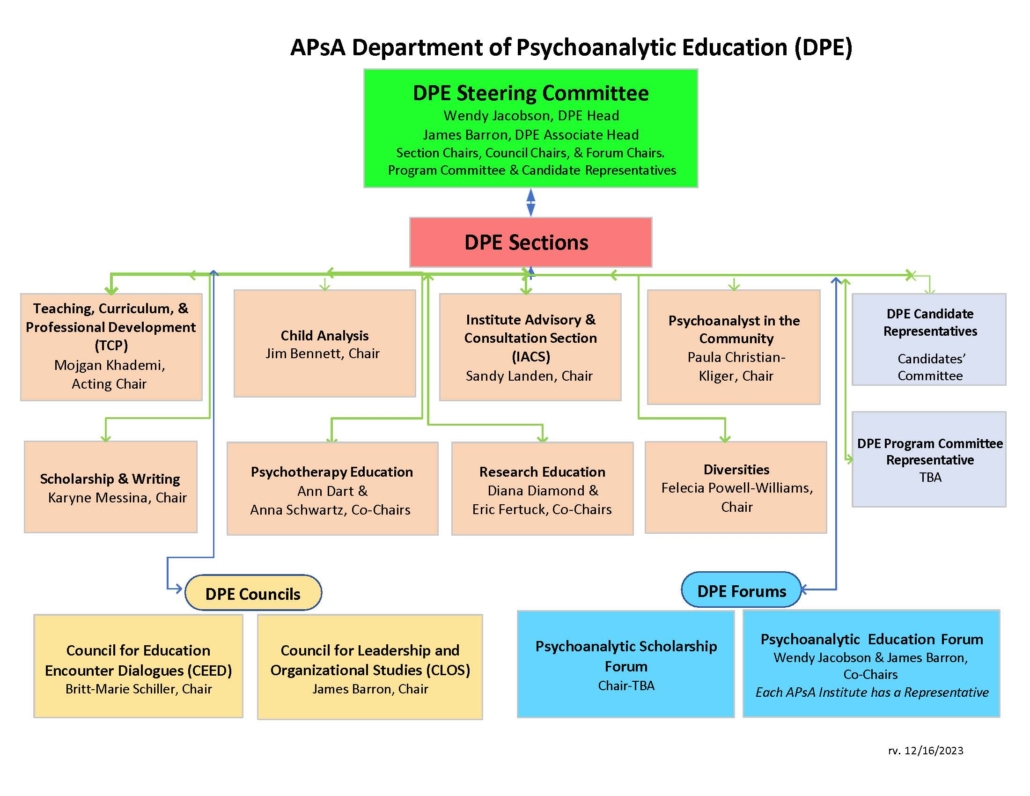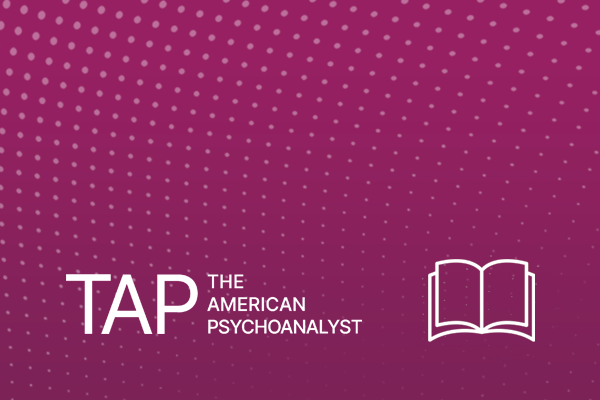Welcome to the Department of Psychoanalytic Education (DPE). The DPE promotes excellence and innovation in psychoanalytic education while supporting professional development throughout the analytic life cycle. We approach the tasks of psychoanalytic education, training, and formation of a psychoanalytic identity in a creative, flexible, and disciplined manner. We emphasize critical thinking, depth, breadth, rigor, and exploration of new ideas as psychoanalysis continues to evolve. We believe that psychoanalysis has much to offer and learn from active dialogue with other disciplines. We view psychoanalysis as both a powerful treatment and a powerful method to understand the mind in its depth, complexity, and impact. We recognize that our internal worlds and our social and cultural surround continuously interact and shape each other, and that psychoanalysis has a critical role to play in understanding and addressing pressing issues and dynamics on an individual, group, and societal level. We hope to provide an educational home that fosters ever deepening unique and novel psychoanalytic identities that contribute to these goals.
Contact Information
- James Barron Ph.D., ABPP, DPE Head: [email protected]
- Paula Christian-Kliger, Ph.D., ABPP, DPE Associate Head: [email protected]
The APsA Standards and Principles for Psychoanalytic Education guide the DPE in its endeavors particularly with their emphasis on learning and growth throughout the analytic life cycle. We participate in the Inter-Institutional Initiative which meets regularly with institute/center leadership across the country in conjunction with the APsA President, President-Elect and other APsA leadership to discuss common challenges and exchange ideas. As our organizational chart shows, we have eight Sections and two Councils. We also present the DPE Education Forum and the DPE Scholarship Forum at the APsA national meetings. The DPE Head and Associate Head in conjunction with the Chairs of our Sections and Councils, along with our Candidate representatives and Program Committee representative, comprise our Steering Committee. In all its endeavors, the DPE is strictly non-regulatory.

The DPE helps teachers and students engage deeply with psychoanalytic ideas and apply them in our changing world by providing resources to support all aspects of analytic education at APsA affiliated institutes and centers. The DPE Teaching, Curriculum, and Professional Development (TCP) Section provides process and content help with each of the areas in its name, including supervision from a developmental perspective. The DPE Institute Advisory and Consultation Section (IACS) provides confidential help to APsA institutes and centers of a focal, intermediate, or comprehensive nature. The DPE integrates perspectives from each of our specialty-focused Sections, which include Diversities, Research, Child, Community, Psychotherapy, and Scholarship & Writing. The DPE Council of Education Encounters (CEED) provides a forum for collegial exchange of educational ideas and practices in dialogic exchange among teams of colleagues from groupings of APsA and IPA institutes/centers. The DPE Council for Leadership and Organizational Studies (CLOS) provides educational resources to APsA and IPA psychoanalytic institutes/centers and other organizations in our communities to enhance our effectiveness as leaders and promote the health of organizations striving to become more diverse, inclusive, equitable, and just. Click on each for an expanded description of these DPE entities and click on the DPE Library of Resources below. We actively encourage candidate members and participation in DPE endeavors wherever possible. Various DPE components focus on practice development and other pathways to grow professionally, including as leaders confronting challenges vital to the growth and vibrancy of our institutes, centers, and broader field.
Learn More



